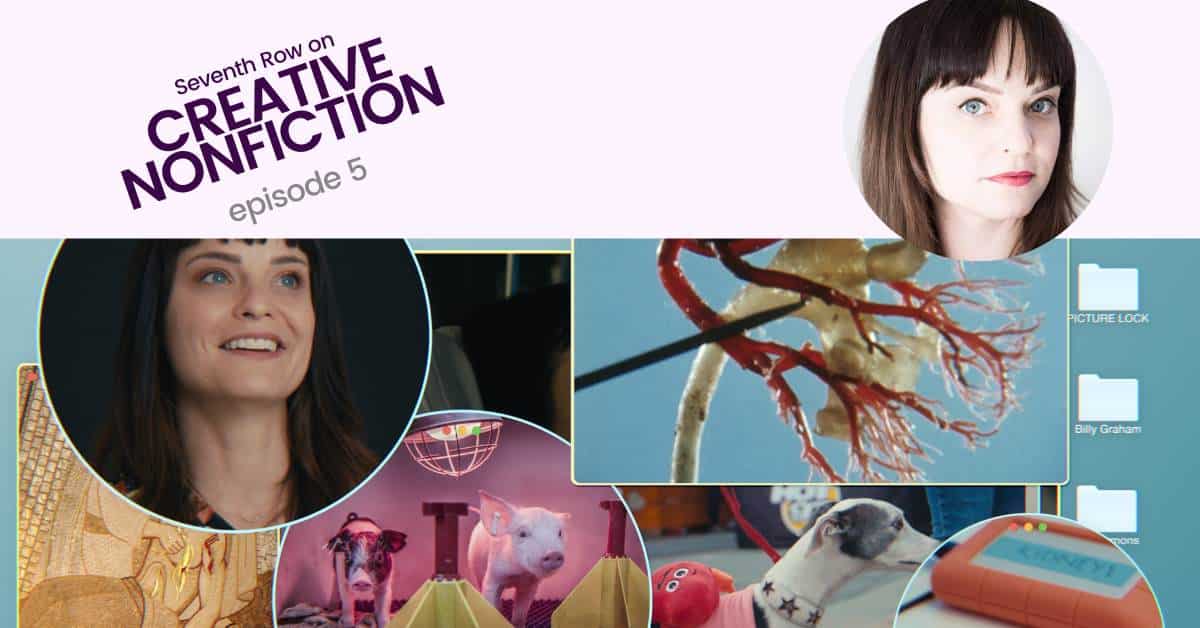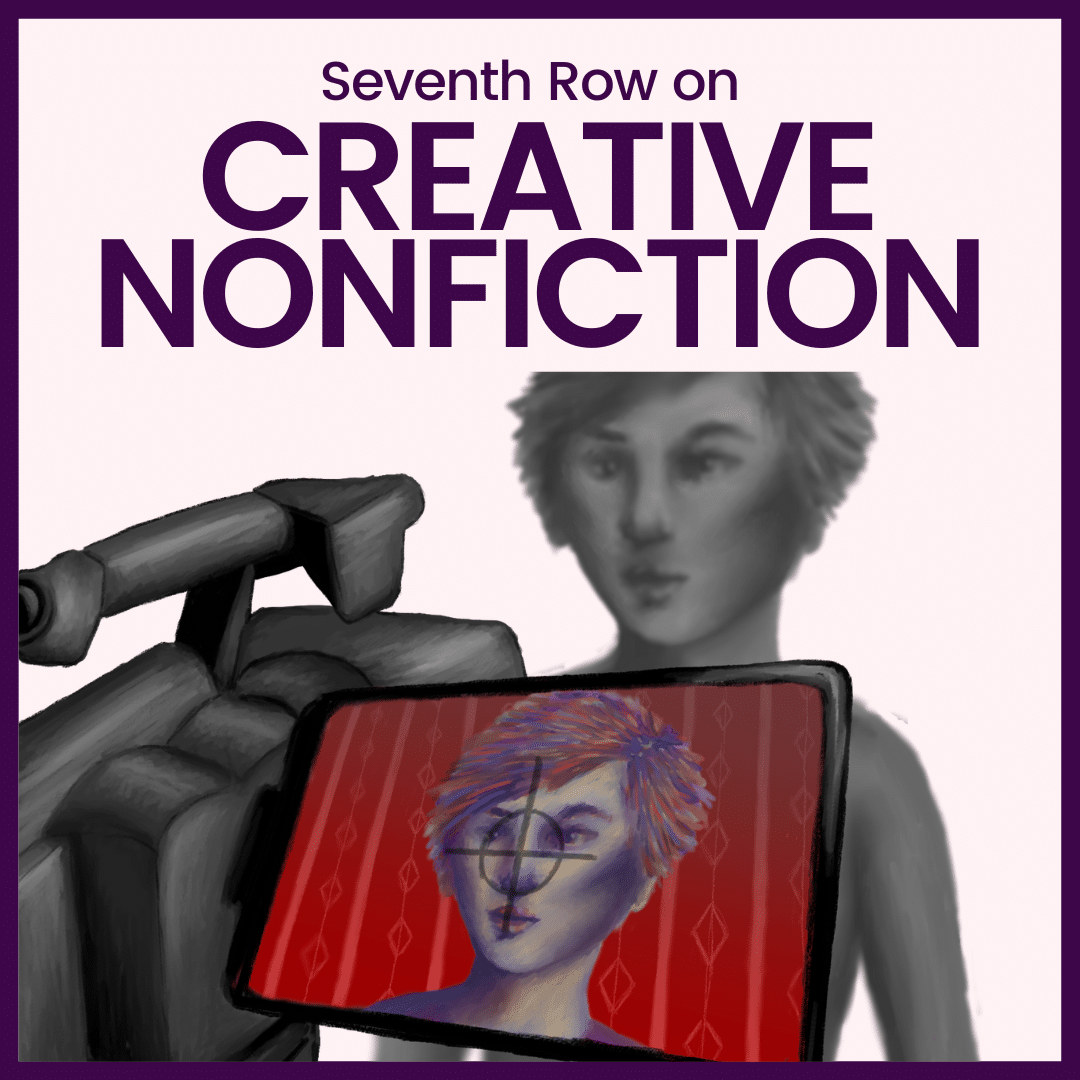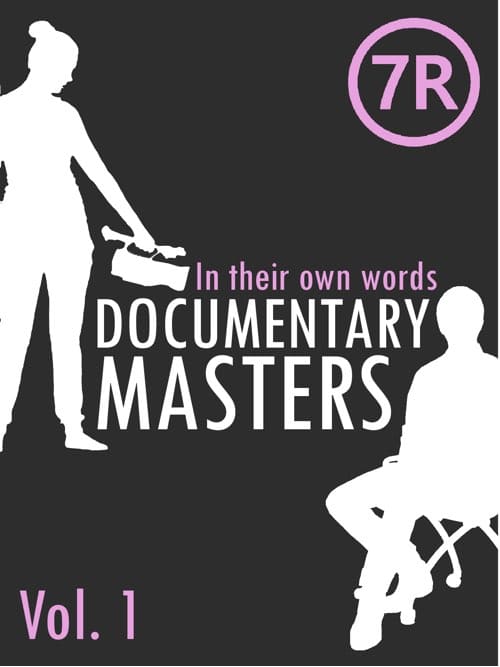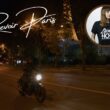In the fifth and final episode of our Creative Nonfiction Film podcast season, Penny Lane discusses her experiments with form in Confessions of a Good Samaritan. This interview was conducted at HotDocs 2023.
Don’t miss a single episode.

On episode 5 of the podcast season, Penny Lane discusses her new documentary film, Confessions of a Good Samaritan, about her journey to becoming an anonymous kidney donor and its emotional repercussions. While educating us on the kidney donation process and why it’s important, the film is, above all, a portrait of the filmmaker in crisis. It is equally a film about making a film about donating a kidney.
Lane uses many different techniques to get us inside her stressed and complicated brain: inviting us onto her desktop, showing us interviews with herself, documenting the donation process with cameras, and even curating archival footage and interviews to reflect the state of mind of the ‘character of Penny Lane’ as she develops through the film.
Penny Lane has been experimenting with film form throughout her career, from the archival footage film Our Nixon, to the animated documentary NUTS!, to the tongue-in-cheek look at the Satanic Temple in Hail Satan? through seemingly conventional talking head interviews, to found footage in The Pain of Others, and beyond. Lane weaves almost all of these techniques (and a few more!) into Confessions of a Good Samaritan, offering a thoughtful, educational, and funny look at the complicated feelings that come with doing good in the world.
Listen to the whole Creative Nonfiction season
In this 5-episode podcast season, Alex Heeney interviews four creative nonfiction filmmakers about their latest films and how they are pushing the boundaries of what documentary and nonfiction film can be.
Listen to all the episodes to discover how filmmakers are pushing the bounds of documentary cinema in 2023.
Show Notes for Creative Nonfiction Podcast with Penny Lane on Confessions of a Good Samaritan
- Discover all of our resources on the films of Joachim Trier
- Pre-order Existential detours: Joachim Trier’s cinema of indecisions and revisions
- Read our review of Penny Lane’s NUTS!
- Read an excerpt from our interview with Penny Lane on NUTS!
- Read our capsule review of Listening to Kenny G
- Watch our masterclass on Creative Nonfiction with Carol Nguyen and Penny Lane
- Get your copy of the ebook Subjective Realities
- Get your copy of the ebook In their own words: Documentary Masters vol. 1
- Discover more Seventh Row writing on creative nonfiction film
- Become a member to listen to our entire archive of podcasts, including our past episodes in which we discuss creative nonfiction films.
Get our ebooks on documentary filmmaking and creative nonfiction film
Dive deep into the work of Frederick Wiseman and Gianfranco Rosi and read our initial interview with Penny Lane on creative nonfiction by getting Documentary Masters in a bundle with Subjective Realities: The art of creative nonfiction film.
Download a FREE excerpt from Subjective Realities here.
Never miss an episode again. Become a member.
The Seventh Row Podcast spotlights under-the-radar, female-directed, and foreign films. All of our episodes are carefully curated. Indeed, we only discuss films we think are really worth your time and deserve in-depth critical analysis.
Our episodes that are more than six months old are only available to members. In addition, many of our new episodes are for members only.
For exclusive access to all of our episodes, including all of our in-between season episodes, become a member.
Related Episodes to the podcast Penny Lane on Confessions of a Good Samaritan
- Ep.12: Penny Lane on Hail Satan? (Members’ Exclusive): Penny Lane discusses her 2019 film Hail Satan
- Ep. 40: Dead Mothers (Members’ Exclusive): We discuss Joachim Trier’s Louder Than Bombs, a film that expertly gets inside the head of its thoughtful characters. We also compare it to Mouthpiece and Stories We Tell.
- Ep. 122 Joachim Trier’s The Worst Person in the World (Free): Joachim Trier’s breakout hit is also a film that is very good at getting us inside the protagonist’s mind amidst an existential crisis.
- Ep. 99: Creative Nonfiction with Penny Lane and Carol Nguyen
Related Episodes on creative nonfiction film
- Sundance 2023 Ep. 7: Best of the fest + documentaries Fantastic Machine, Is There Anybody Out There, and more
- Ep. 123: Sundance 2022: Creative Nonfiction
- Ep. 105: Subjective Realities: The art of creative nonfiction film: We discuss the making of the ebook Subjective Realities and what you can expect from the book
Listen to all the related episodes. Become a member.
All of our episodes that are more than six months old are only available to members. Additionally, we have many bonus episodes and in-between season episodes which are also only available to members.
For exclusive access to all of our episodes:
Credits
Host Alex Heeney is the Editor-in-Chief of Seventh Row. Find her on Twitter @bwestcineaste.
This episode was edited, produced, and recorded by Alex Heeney.
Episode transcript
The transcript for the free excerpt of this episode was AI-generated by Otter.ai.
[fusebox_transcript]




